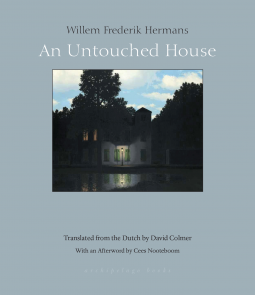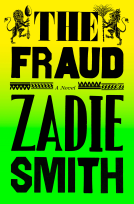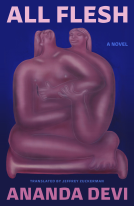
An Untouched House
by Willem Frederik Hermans
This title was previously available on NetGalley and is now archived.
Send NetGalley books directly to your Kindle or Kindle app
1
To read on a Kindle or Kindle app, please add kindle@netgalley.com as an approved email address to receive files in your Amazon account. Click here for step-by-step instructions.
2
Also find your Kindle email address within your Amazon account, and enter it here.
Pub Date Oct 23 2018 | Archive Date Aug 21 2018
Talking about this book? Use #AnUntouchedHouse #NetGalley. More hashtag tips!
Description
“The kind of book that stays with you forever.” —The Guardian
“Hugely entertaining." —The Scotsman
A Sunday Times Book of the Year: A brooding meditation on violence set during World War II—from a classic Dutch writer who has drawn comparisons to Joseph Heller and Kurt Vonnegut
In this mesmerizing, dark meditation on the legacy of war, an interloper and opportunist makes a grand house of his own in the chaos of a war-torn countryside—only to find himself involved with occupying forces and enraged locals.
Advance Praise
"As disturbing and powerful as anything by Joseph Heller or Kurt Vonnegut." --Michel Faber
"Hermans is as alarming as a snake in the breadbin... hugely entertaining." -- The Scotsman
"A violent apotheosis without equal in modern literature. A sadistic universe that offers no room for escape." - Cees Nooteboom
"Unsurpassed in its stylistic precision, unsettling in its language, dialogue, atmosphere, humour." --Harry Mulisch
"[Hermans] granted me a silence in which I could hear this novel's voice in all its purity, in all the beauty of the unexplained and the unknown." --Milan Kundera
'A literary tour de force." -- Frankfurter Allgemeine Zeitung
Praise for Hermans' The Darkroom of Damocles:
"I didn't know more [than a few facts about Hermans or his life]. But that wasn't necessary to delight in his novel. Works of art are gnawed at by a frenzied pack of comments and facts and their din renders the singular voice of a novel or a poem inaudible. I finished Hermans' book with a sense of gratitude for my ignorance; it granted me a silence in which I could hear this novel's voice in all its purity, in all the beauty of the unexplained and the unknown. . . I dove into this novel, intimidated at first by its length, then surprised at having read it without stopping. Because this novel is a thriller, a long chain of events in which the suspense never lets up. The events (which take place during the War and in the years immediately after) are described in a dry, exacting manner, detailed but swift; they are terribly real, yet skirt the limits of plausibility. I was captivated by this aesthetic: a novel smitten with the real and at the same time fascinated by the improbable and the strange." -- Milan Kundera, Le Monde
Available Editions
| EDITION | Other Format |
| ISBN | 9781939810069 |
| PRICE | $16.00 (USD) |
| PAGES | 120 |
Average rating from 10 members
Featured Reviews
 Joseph C, Reviewer
Joseph C, Reviewer
How best to convey, in writing, the indescribable horrors of war? Some authors place us in the midst of the battlefield, on the front line, in the trenches. Others take us to blitzed and occupied cities, with tales of ordinary lives in extraordinary circumstances. Others discern some light in the darkness of the carnage – acts of valour, of compassion, of kindness which provide a welcome contrast to the bloodshed.
The novels of Dutch author Willem Frederik Hermans show us “the absurdity, cruelty and pointlessness of war”, as Cees Nooteboom explains in the afterword to this edition of “An Untouched House”. For Hermans, war is just another facet of what he considered a “sadistic Universe”. There is therefore a metaphysical, cosmic underpinning to the author’s work, and it is unremittingly bleak.
This novella, first published in 1951, is now available to English readers in a translation by David Colmer. This might be a book about war, but its setting is surprisingly distant from any ‘traditional’ battle, at least at first. The unnamed narrator, a Dutch member of the resistance, finds himself in a deserted spa town and discovers an abandoned, palatial house, seemingly untouched by the fighting. He deserts his fellow combatants and instals himself in it.
There is something surreal about the house. With its magical feel and its mysterious locked room, it seems to come out of a fairytale, not unlike the ‘lost chateau’ in Le Grand Meaulnes. It is hardly surprising then the narrator starts to believe that he will be safe from harm as long as he remains within it. But even this house will become a theatre of war. When the house is requisitioned by the German troops occupying the town, the narrator wildly holds on to his fantasy by pretending he is the owner. Eventually the NAzis are ousted by the Russian troops, aided by the Resistance. And so it is that the real world dispels the protagonist’s dreams, and what initially seemed a setting peripheral to the conflict is also touched by the “sadism of the Universe”.
Indeed, a defining element of this novel is its unrelenting violence, which reaches gut-wrenching levels in the final pages. Tinged with black humour and purposely over the top, the novel’s climax reads like a scene out of a Tarantino movie. No side is spared any punches: not the German soldiers, disseminating fear whilst acting as self-proclaimed defenders of “culture”; not the Russians or the partisans, at whose hands the town collapses into chaos. No wonder this novel made its author unpopular in some quarters. It is a veritable kick in the guts, a powerful indictment of war.
 Paul F, Reviewer
Paul F, Reviewer
The renowned Dutch author Willem Frederik Hermans remains rather undertranslated, and consequently underappreciated in English, so this new translation from David Colmer, published by Archipelago Press in the US and Pushkin Press in the UK, is very welcome.
In an informative afterword Cees Nooteboom quotes Hermans' own description of his credo:
"Creative nihilism, aggressive pity, total misanthropy” and his World War II based books, notably his most famous work in English The Darkroom of Damocles and this one, reflect that - there are no heroes in Hermans war, no sentimentality, no ideology, just chaos, brutality and the desperation to survive.
It is 1944, and our unnamed first person narrator, having left the Netherlands in November 1940, is fighting with the Russians somewhere on the front (perhaps near Breslau), part of an international band of partisans. As he explains in broken French to a Spaniard, himself a civil war refugee of 8 years service:
"“Me spy,” I said. “Little...” With my hands I indicated the degree to which I had been a spy, thinking about the next sentence. “Captured by Germans. Prison. Sentenced. Three years. Hard labor. On way to different prison, escape. Captured again. Concentration camp. Strellwitz. You know Strellwitz? Six months. Escape again. Caught, close to Swiss border. Jump out of train in Saxony. Walk, keep walking east.”"
Amidst the chaos of a battle he ponders that on the one hand his life is in imminent danger at all times, but on the other hand does the wider world war really exist in terms of his day-to-day reality:
"The bullets from their machine guns drilled into the nearby ground. It could happen now too, I thought, and I’m just sitting here, not doing anything, thirsty. I could get hit now too, as if sitting was punishable by death. But death comes for everyone, even without any wars . What difference does war make? – Imagine somebody who doesn’t have a memory, who can’t think of anything beyond what he sees, hears and feels. . . War doesn’t exist for him. He sees the hill, the sky, he feels the dry membranes of his throat shrinking, he hears the boom of . . . he’d need a memory to know what’s causing it."
Consistent with that his division find themselves in an abandoned town and sent on a vague reconnaissance mission he finds himself in an abandoned but large house:
"The inhabitants must have fled or been evacuated. Two dogs came towards me. I held out a hand, but they were chasing each other and took no notice. It made me feel like I was dead, as if I could see them, but they could not see me. I couldn’t shake the thought that they had run right through me instead of past me. All I heard was their panting and the click of claws on cobblestones. The abandoned houses were about to stir and gather round me, offering themselves to me like women in travel stories about Indochina. The war had never really taken place; as long as I wasn’t wounded, nothing had happened. There had never been any other people, not in my lifetime, nowhere in the whole world.
....
After going into the front garden and making my way across the lawn to the steps, I realized that this would be the first time in a very long while that I had entered a real house, a genuine home. I had slept in prisons, in barracks, on straw in classrooms, once under a truck, in haystacks , in goods wagons. For three years I hadn’t once spent the night anywhere except shelters where people only worked, waited, or were held prisoner : police or railway stations, barns; a week in a hospital."
An idyllic scene although his description contains one hint of the horrors to come:
"There was a sloping, dark green lawn with a large plane tree in the middle that had been pollarded so many times it now looked like a gallows with room for an entire family."
He decides to stay in the house and leave the war behind, hiding his gun and uniform, rather fortunately as the German forces quickly retake the town in a counterattack and he is able to pass himself off as the house-owner to a (it must be said rather cliched) German officer:
"He began to make a show of tapping a cigarette on a silver case. “Since joining the army,”he said, “I have shaved every day without fail at exactly half past six in the morning. With hot water. I have been in the army for forty years today. Shaving with hot water, war or no war! That is what I understand by culture!”Although taller than me, he kept bouncing up and down, making his boots creak. “Culture gives no quarter! Culture is a single whole! Extraordinary circumstances are only an excuse! Someone who gives in to extraordinary circumstances, nah! He is simply no longer a person of culture!”I said nothing. You make me sick to my stomach, I thought.
In the last war the British barrage began one morning at quarter past six. At half past I began shaving. It was too dark in the trench, so I moved to higher ground. That cost me half my little finger. But at half past seven I was sitting down to eat breakfast!”"
But as he gradually realises he is not alone in the house, as someone else claiming (more plausibly) to be the owner returns, as the German troops become suspicious and as the Russians counter-counter-attack, he has to resort to increasingly violent acts to maintain his peaceful existence, leading him to question what he has become:
"This bowl of bone covered with its lid and its movable hide, this was where it all came from: the other people, the world, the war, the dreams, the words, the deeds that seemed to happen so automatically it was impossible to imagine ever having been capable of thinking things through; as automatically as if one’s deeds were the world’s thoughts. You would need a second head to understand what that first head was, but I only had one, here in my hands, holding it in a way people never hold anything else. Yet, if not for the claims of scholars , you wouldn’t know your head was any different from your hand or foot."
And as he leaves the house for good he realises that: "it was like it had been putting on an act the whole time and was only now showing itself as it, in reality, had always been : a hollow, drafty cavern, rancid and rotting at its core".
A short and relatively simple but powerful story and a great introduction to Hermans work.
Thanks to Archipelago Press and Netgalley for the ARC.
 Neil G, Reviewer
Neil G, Reviewer
This is the first of Hermans’ works that I have read. This is at least partly due to there being very little of his work available in English which is the only language I am comfortable reading in. According to Wikipedia, this novella was the first of Hermans’ works to be translated into English when it was called The House of Refuge and was included in a collection called “The World of Modern Fiction” in 1966. Now a new translation from David Colmer is being released and my thanks to he publisher and NetGalley for a review copy.
As Hermans is new to me, I took a bit of time to investigate the author. It seems he is known for his pessimistic view of humankind. In particular, relevant to this novella, he sees civilisation as a very thin veneer over a much darker and chaotic human nature. And he sees war as a place where that dark side is released i.e. a place where we see the reality of people that we normally keep suppressed. To an extent, this view reminded me of the film “Saving Private Ryan” where the battle scenes, especially the long opening scene, show men descending into inhuman violence and becoming more and more animal-like.
It is this descent that Hermans manages to chronicle in what is actually a very short novella. A soldier fighting with the partisans in 1944 in the Second World War comes across a house that appears to be untouched by war and abandoned. This is the first sign of an almost dream-like, nightmarish, quality to the book (the locked room in the house will be another later on, and there are others). Our narrator moves in and, when the German troops arrive he decides to assume the role of the owner which the troops accept. This is working well until the real owner (or, at least, someone with a more realistic claim to ownership) turns up. Gradually, the instinct for self-preservation starts to take over and the violence escalates. Then the Germans lose control of the town again and the partisans go on a rampage bringing the book to a violent, destructive and bloody end.
War is a nightmare. War is, if you take Hermans’ pessimistic outlook on people, mankind acting without the veneer of civilisation and showing its true colours. It is, ultimately, a depressing but thought-provoking story.
 Mandy J, Reviewer
Mandy J, Reviewer
A powerful and nightmarish portrayal of the absurdity and pointlessness of war. The narrator is a Dutch partisan fighting with the Russians towards the end of WWII. Amidst the chaos he finds himself in an abandoned spa town and makes himself at home in a deserted mansion. Later the Germans arrive and requisition the house. The house has offered a brief respite from the violence and horror but the author casts an unflinching gaze at the senseless violence that ensues. It’s a dark and disturbing tale, made all the more horrific by the spare and unemotional prose in which the narrators’ thoughts are couched. First published in 1951 and now available in a new English translation, it surely ranks among other classics of war writing, and I am very pleased to have discovered it.
 Reviewer 68310
Reviewer 68310
"Creative nihilism, aggressive pity, total misanthropy”
Hermans delivers on his own self-description here. A deceptively simple story of a unnamed tired soldier occupying a house in an unnamed town, this is a blistering novella lacking any sentimentality giving a portrait of a time with no purpose. The narrator really no longer understands (or cares to) with whom or why he's fighting so when he stumbles on this untouched house that seems separate from the war, he clings onto it with all his might. This novella is particularly good at conveying that pointlessness, cruelty of wartime and it is bleak. It is bleak but somehow, compelling to read-couldn't put it down though it made my skin crawl.
 Lizzy S, Reviewer
Lizzy S, Reviewer
I was positively hyperventilating at the thought of a newly translated W F Hermans novella. (And novella is it, despite the claims of the book cover.) Taking. my cue from other bloggers, I am currently compiling my 100 book capsule library. It’s proving difficult, but the first book on the list is a no brainer. I have decided that Hermans’s The Darkroom of Damocles is my favourite novel of all time. Hermans was a prolific writer, but pitifully little of his oeuvre has been translated into English (due apparently to the writer’s unwillingness.) Let’s hope that the publication of An Untouched House by Pushkin Press is the herald of a future feast to come.
257D5605-7247-47F4-99B2-BE3D894FE99FTranslated from Dutch by David Colmer, An Untouched House takes us to the Eastern Europe during the end days of World War II. The unnamed Dutch protagonist is fighting with a group of partisans. In the midst of battle, his commander sends him on a search for booby traps. When he finds a huge house, abandoned by its occupants, yet otherwise untouched by the war, full of creature comforts, he decides he’s going to stay. He discards his uniform and pretends to be the owner. When the Germans requisition the house, he puts up no resistance and manages to persuade the troops to leave him in peace in the rooms he now calls his own.
Is this desertion, collusion with the enemy or simple pragmatism? Hermans offers no comment, and at this point, there is a slightly comic feel in the absurdity of the story. Days of cohabitation with the troops pass by peacefully. But the mood darkens when the house owner reappears, and our “hero” reveals himself to be the antihero more commonly associated with Hermans’s work, one more aligned to the author’s view of there being only “a thin veneer covering the monstrousness of human nature”.
A monstrousness that the partisan is prepared to unleash without compunction in order to preserve his cushy number. And one which is then dwarfed by the sickening atrocities that take place as the Germans lose ground and the partisans overrun the house. What will our protagonist do? His days of rest are over, he now has to save himself from the firing squad.
He does so in a way that raises a wry smile. Because there is a suggestion that this is not the first time he has used the same ruse. Perhaps it is his way of surviving the war and who can blame him in the face of the amorality that surrounds him
The lack of moral judgment is key to Hermans’s work. The story does all the talking. There’s no honour in war. It’s devastating, and brings out the worst in mankind. There are those who try to preserve a common decency, a semblance of civilisation. The German commander, for example, prevents his men from rampaging through the house, and takes pride in maintaining his toilette.
Since joining the army […] I have shaved every day without fail at exactly half past six in the morning. […] That is what I understand by culture!’
Pitifully little, it is all he can do. Unfortunately it is insufficient to save him – and the house, which has done nothing but provide shelter – from the savagery of war. As Cees Nooteboom points out in the really informative afterword, Hermans believed in the malice of a sadistic universe. And that is exactly what is portrayed in the end pages of this novella. Not for the faint-hearted.
Readers who liked this book also liked:
Kate Quinn
General Fiction (Adult), Sci Fi & Fantasy, Women's Fiction
Anna Kovatcheva
General Fiction (Adult), Historical Fiction, Women's Fiction
Rachel Joyce
Historical Fiction, Literary Fiction, Women's Fiction


















